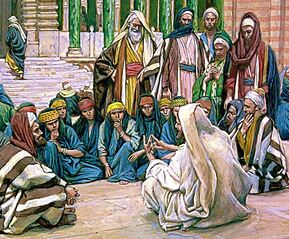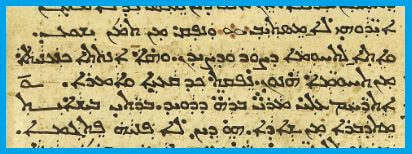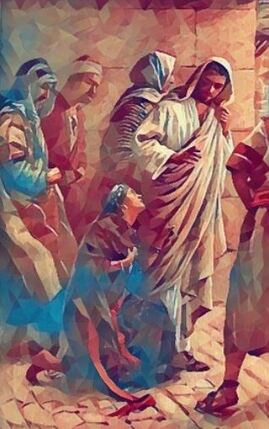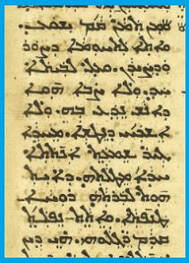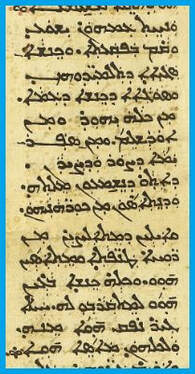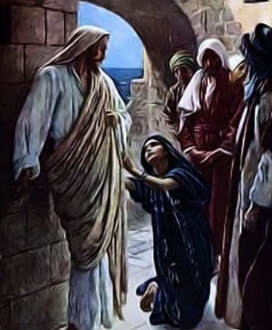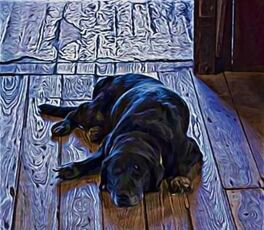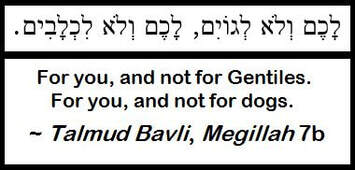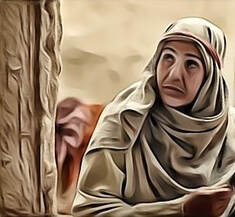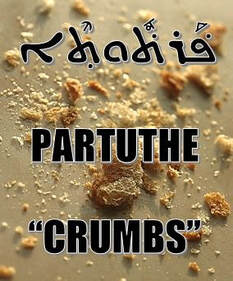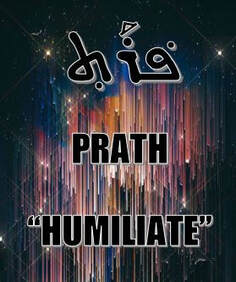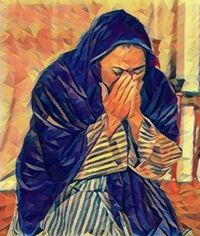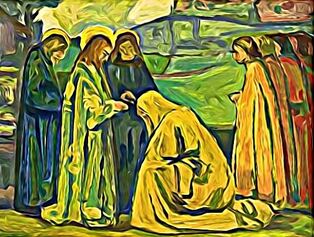THE DOG
by Jeremy Chance Springfield
4/1/2022
Yeshua’s outreach was focused almost exclusively on His fellow Jewish countrymen. His teachings were directed to those common people of the land who were otherwise largely ignored by the religious elite of His day. To the farmer, the shepherd, the tanner, the tailor—all who might be eager to hear the words of a rabbi who was willing to make time for those who were normally not singled out as worth educating. Rather, the typical religious education of Yeshua’s time was found in the rabbinic schools and synagogues, leaving all who were unable to attend such environments mostly without easy means to learn about the Creator and His covenant with them.
|
This emphasis on the everyman often led to conflict with Yeshua’s religious counterparts. The Pharisees and Sadducees took the opportunity to oppose Him in these public settings—which usually led to them being called out for their various hypocrisies relating to how they failed to follow their own traditions while insisting their followers adhere to such decrees.
|
In these interactions, the ministry of Yeshua shone brightly as a Messianic beacon, giving hope to those not typically used to being so freely exposed to righteousness, while also advocating responsibility and integrity to those who were already serving as religious role models for all of Israel.
One of the oddest incidents in Yeshua’s notably atypical willingness to teach the public is that involving a non-Jew. Recorded in Matthew 15 and Mark 7, the account of the Gentile woman who came to Yeshua begging for healing for her daughter is not just beyond rare, but unusual regarding how Yeshua reacts to the encounter.
This study will examine only the Matthew passage from its Aramaic source-text as preserved in the Peshitta New Testament, and in doing so, will clarify the bizarre events of the situation in a way that will make the meeting have more sense than is commonly provided from typical English translations and commentaries. The account begins in Matthew 15:21-22.
The contextual setting for this meeting immediately follows an interaction Yeshua and His disciples had with the sect of the Pharisees, who questioned Him on the factor that some of His disciples were apparently not following the majority when it came to Jewish customs regarding handwashing and eating. The accusatory nature of the Pharisees resulted in an inflammatory explanation and rebuke of hypocritical actions apparently endemic among the religious elite of Yeshua’s day.
With this incident fresh on the minds of His disciples, they entered into the region of Tyre and Sidon—an area essentially extending north of the Galilee region, which was populated mostly by Gentiles both Phoenician and Roman, among others. Verse 22 describes the woman as a “Canaanitess.” This was a more ancient descriptor of her provenance. The parallel passage from Mark 7 gives her a more modernized label as a “Syro-Phoenician”—a person of Syrian-Phoenician descent. Mark’s label would have been a more accurate description of her nationality at the time.
With this incident fresh on the minds of His disciples, they entered into the region of Tyre and Sidon—an area essentially extending north of the Galilee region, which was populated mostly by Gentiles both Phoenician and Roman, among others. Verse 22 describes the woman as a “Canaanitess.” This was a more ancient descriptor of her provenance. The parallel passage from Mark 7 gives her a more modernized label as a “Syro-Phoenician”—a person of Syrian-Phoenician descent. Mark’s label would have been a more accurate description of her nationality at the time.
Yeshua’s journey into the borders of a Gentile land is notable, for first century historian Flavius Josephus wrote about the sour treatment of those very people towards Israel.
Poor treatment by the pagans of the area was thus probably expected and is likely the reason behind Yeshua not wanting anyone to know that He had come into the region, a detail the parallel account explicitly tells us in Mark 7:24-25.
|
24 And from there Yeshua rose, and came to the borders of Tzur and of Tzadan, and entered into a certain house, and did not desire that a man should know of him, but he was not able that he could hide it,
25 for at once a certain woman heard about him, whose daughter had a spirit of impurity, and she came, falling before his feet. |
However, the incident recorded in the Gospels of what transpired with the Gentile woman shows an altogether different attitude to the Jewish rabbi who was so oddly willing to make a foray onto foreign land. The reason for this uncharacteristic reception of Yeshua by the locals almost certainly stems from prior contact between these people and Yeshua that occurred earlier in His ministry. Luke 6:17-19 chronicles what previously transpired that ultimately led to word of Yeshua’s fame and power making it back to the Gentile lands of Tyre and Sidon.
|
17 And Yeshua descended with them, and stood in the plain, and a great gathering of his students, and many who gathered of the people from all Yihud, and from Urishlem, and from the seashore of Tzur and of Tzadan,
18 who had come that they should hear his words, and that they should be healed from their sicknesses, and those who were afflicted from impure spirits—and they were healed! 19 And all the assembly sought him, to touch him, for power went forth from him, and he healed them all. |
Rumor of a Jewish rabbi with miraculous powers willing to heal Jew and Gentile alike inevitably made its way back across the borders and was the impetus for the woman seeking out the rabbi who had so bizarrely crossed over into their territory. Fueled by the faith-filled accounts of the healings that had occurred to her countrymen—including those who were freed from demonic oppression—the woman approached the Galilean rabbi boldly and with assured expectation of a similar positive reception for her demon-bound daughter.
Matthew 15:23 records Yeshua’s response to her presence.
Matthew 15:23 records Yeshua’s response to her presence.
Imagine her surprise when He did not respond--at all. Rather than an open-armed acceptance, Yeshua’s reaction was to ignore her completely. What a shock this must have been to her anticipation of a warm willingness to heal her daughter. Instead, His silence must have served like a slap in the face. That “ill disposition” so routinely expressed by the Tyrians and Phoenicians towards Israel was now being returned in a most unexpected manner by the one rabbi who had recently been eager to restore even Gentiles from their various maladies.
The disciples, annoyed by her dogged persistence, request that she be turned away by Yeshua’s rebuke and have their peace restored. The answer their rabbi gives is equally surprising, as read in Matthew 15:24.
The disciples, annoyed by her dogged persistence, request that she be turned away by Yeshua’s rebuke and have their peace restored. The answer their rabbi gives is equally surprising, as read in Matthew 15:24.
Yeshua’s reply to the disciples is that He will not send her away because His entire purpose of outreach in ministry is focused on the lost sheep--of the House of Israel. Herein lay an important detail not typically elucidated when this passage is addressed. Yeshua is telling them that He cannot send her away based on the reality of her lineage: although the text calls her both a “Canaanitess” and a “Syrian-Phoenician,” Yeshua’s words reveal the truth of her history—she is a remnant of the House of Israel!
This surprising detail is a prophetic revelation on His part. Yeshua discerned her true racial history as being a long-lost remnant from one of the ten tribes who were mostly assimilated into the Gentiles over seven centuries before by Assyria! The account can be read about in full in 2nd Kings 17:5-23 for those interested in the specifics. Various theories exist as to where all those ten tribes ended up, and Judaism itself has different ideas on when and how they might return from an exile that has continued to this day. What matters, however, is that the nature of His response be seen for the astonishing reality it implied: although called a “Canaanitess” and a “Syro-Phoenician,” this woman was in truth a far-removed descendant of the Hebrew people who had been exiled and thoroughly assimilated by a pagan people! To help her, therefore, was a necessity.
The uniqueness of the situation, however, meant that Yeshua would test her spiritual status and see what was really happening in her heart. What occurs next is admittedly one of the most brutal exchanges Messiah ever had with another person, as recorded in Matthew 15:25-26.
Such a reply is startling and difficult to swallow as a response coming from the one person in which all peoples should be able to look to for acceptance and hope. It is easy to view it as an insult of the highest order. Imagine calling someone a dog who is seeking help that only you can provide. The pejorative of “dog” was particularly highlighted due to the fact Yeshua had just called fellow Israelites “sheep”—a more endearing term by far than “dog.” All of this was apparently uttered within the earshot of this Gentile woman who merely sought healing for her afflicted daughter.
The answer is that for as unsettling a reply as it truly is, the words of Yeshua exemplify the view of Jews towards Gentiles—from antiquity even to the time of the Messiah.
Gentiles are viewed in Scripture in a different light than those in covenant with the Holy One. According to Psalm 59:5-6, 14, King David viewed Gentiles as “dogs.”
Gentiles are viewed in Scripture in a different light than those in covenant with the Holy One. According to Psalm 59:5-6, 14, King David viewed Gentiles as “dogs.”
In fact, the Talmud Bavli, in tractate Megillah 7b, even calls Gentiles by this specific moniker of “dog,” and with the similar topic of preparing food specifically for meeting the requirements of the Jewish people during the fulfillment of Sabbaths and Scriptural festivals.
The Talmud is discussing when it is permissible for Hebrews to prepare food, and the notion is that it is permissible on festivals as long as it is done “for you”—that is, for the believer involved in observing the festival, and not for a secular purpose concerning a Gentile—which it refers to similarly as Psalm 59 above as “dogs.”
When further understood in this light, the words spoken by Messiah are thus perhaps not so striking after all—they were indicative of a long-standing cultural expression concerning the Gentiles in the midst of the chosen people. In addition to this utterance, it could even be explained that many passages throughout Hebrew Scripture equate Gentile nations with different animals for all types of reasons.
What is most important, however, is how the woman responded to this statement that would have driven most people away in anger. Matthew 15:27 holds her reply.
When further understood in this light, the words spoken by Messiah are thus perhaps not so striking after all—they were indicative of a long-standing cultural expression concerning the Gentiles in the midst of the chosen people. In addition to this utterance, it could even be explained that many passages throughout Hebrew Scripture equate Gentile nations with different animals for all types of reasons.
What is most important, however, is how the woman responded to this statement that would have driven most people away in anger. Matthew 15:27 holds her reply.
In these words lay the heart of the woman revealed for us all. She had come for healing for her daughter. She had not come for herself. Furthermore, with a contextual understanding of the bad blood that had for so long existed between the Syro-Phoenicians and the Jewish people, she must have already prepared herself mentally and emotionally to look past whatever ill will might linger and color the response that she could possibly receive. For this, she was undeterred in her purpose for being present there: no amount of uncouth words aimed at her by this rabbi would hinder her hope that He could heal her daughter’s chronic demonic situation.
She rolled with the verbal punch leveled at her by the Messiah and agreed with His scathing assessment of the propriety of what she appeared to be asking. It would indeed be wrong to give so magnanimously to the Gentiles when the promise is to Israel first. The reason it would be wrong, she asserted, is because the profound and overflowing spiritual good being bestowed upon Israel would naturally mean there was something of worth falling down to the Gentile level, as well. What was being asked was not a change of focus, but the proverbial throwing of a spiritual bone to the dogs under the tribe’s table.
These truths can be perceived by looking closer at the wording she chose in her response as preserved in the Aramaic of the Peshitta New Testament. When she said “breadcrumbs,” the Aramaic term she chose was PARTUTHE, which means “fragments / pieces.” However, the root of the term is PRATH, which literally means “humiliate / belittle / demean.”
These truths can be perceived by looking closer at the wording she chose in her response as preserved in the Aramaic of the Peshitta New Testament. When she said “breadcrumbs,” the Aramaic term she chose was PARTUTHE, which means “fragments / pieces.” However, the root of the term is PRATH, which literally means “humiliate / belittle / demean.”
This choice of word was an intentional word-play on the insult that Yeshua had just directed at her. It was a simultaneous acknowledgement that she understood she had just been demeaned by the rabbi, and that even such humiliating treatment as that was acceptable as long as He was willing to heal her daughter. She was fine with enduring the brunt of verbal scorn if it meant the demon afflicting her beloved daughter was made to flee by the rabbi’s spiritual authority. It is an emotional record of her determination to receive the healing she sought. In contrast to this, the Greek version of her words holds no hint of a word-play, which makes sense, as Aramaic was the widespread language of the Middle East in those days—not Greek.
It was an immediate owning of her perceived status as a Gentile—all while not realizing the truth of what Yeshua discerned about her lineage once connecting to His own. In this moment, her words displayed the reality of what beat inside her heart: faith that what the Holy One of Israel was doing with His people through the Messiah was sufficient to bless also the Gentiles in His presence.
It was an immediate owning of her perceived status as a Gentile—all while not realizing the truth of what Yeshua discerned about her lineage once connecting to His own. In this moment, her words displayed the reality of what beat inside her heart: faith that what the Holy One of Israel was doing with His people through the Messiah was sufficient to bless also the Gentiles in His presence.
Yeshua is impressed with her show of trust and responds in Matthew 15:28 with a positive reply and the answer to her request.
Like those who had traveled to Israel to be healed by Yeshua, this woman’s daughter receives her own healing due to her mother’s willingness to put aside personal pride and racial ill will and seek out the Jewish rabbi who had entered her borders. With an astounding display of unwavering faith, the Gentile woman who had a tenuous link to Yeshua’s own people received the healing she had sought.
This incident that occurred beyond the borders of Galilee would have been a testament to the expansive reach of the Messiah’s ministry. It served as a prophetic glimpse of what was to come: the outreach of Yeshua would extend beyond His Israelite kin and into the scattered Gentile peoples of the world—bringing hope to all who are willing to set aside personal pride and dare to act upon the faith they hold inside.
All study contents Copyright Jeremy Chance Springfield, except for graphics and images, which are Copyright their respective creators.
